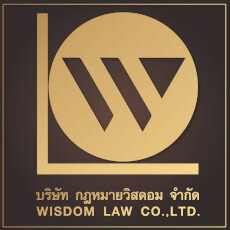Best Biotechnology Lawyers in Thailand
Share your needs with us, get contacted by law firms.
Free. Takes 2 min.
Or refine your search by selecting a city:
List of the best lawyers in Thailand
Legal guides written by Mahanakorn Partners Group Co., Ltd:
- Thailand Strengthens Anti-Money Laundering Laws with New Amendments
- Recent Updates to Thailand’s Long-Term Resident (LTR) Visa and SMART Visa Programs
- Managing Risks in Public-Private Partnership Projects
About Biotechnology Law in Thailand
Biotechnology in Thailand is a rapidly growing field, encompassing the use of living systems and organisms to develop or create products across various sectors including agriculture, health, and environment. The country has been fostering advancements in biotechnology through supportive R&D policies and investment in appropriate infrastructure. Thailand's legal framework around biotechnology is crafted to balance innovation with regulation, to protect consumer safety, and to address ethical concerns.
Why You May Need a Lawyer
People may require legal assistance in biotechnology for several reasons. Entrepreneurs and businesses might need guidance on intellectual property rights to protect biotechnological inventions. Researchers and organizations engaged in genetic modification or other sensitive biotech areas often seek legal advice to ensure compliance with regulatory standards. Furthermore, foreign investors navigating local laws for biotech ventures in Thailand may benefit from legal counsel to understand licensure requirements and other business regulations.
Local Laws Overview
Thailand's biotechnology sector is governed by several key pieces of legislation. The Plant Variety Protection Act regulates the use of genetic resources. The Patent Act is crucial for protecting biotech inventions through intellectual property rights. The Biosafety Law aims to manage the use of genetically modified organisms. Regulations by the Ministry of Public Health and other regulatory bodies play a role in ensuring biotechnology’s safe application. Adhering to these laws is essential for anyone involved in the biotech industry in Thailand.
Frequently Asked Questions
What constitutes a biotechnological invention under Thai law?
A biotechnological invention typically includes processes or products derived from living organisms, which can be patented if they meet the criteria of novelty, inventive step, and industrial applicability.
Are genetically modified organisms (GMOs) regulated in Thailand?
Yes, GMOs are regulated under the Biosafety Law alongside guidelines from various government departments to ensure safe production, usage, and consumption.
How is intellectual property protected in biotechnology?
Intellectual property in biotechnology is primarily protected through patents, providing the inventor exclusive rights to their invention, as regulated by the Thai Patent Act.
Can foreign biotech companies operate in Thailand?
Yes, foreign companies can operate in the biotech sector in Thailand, but they must comply with the country's business and investment laws, often requiring local partnerships or specific licenses.
What are the environmental considerations under Thai biotech laws?
Thailand's biotech laws include environmental impact assessments for certain activities, especially those involving GMOs, to ensure they do not harm local ecosystems.
How can local farmers benefit from biotechnology legally?
Local farmers can benefit through the legal adoption of improved biotech crops, protected by plant variety rights, which potentially offer better yields, pest resistance, and nutritional benefits.
Are there any ethical guidelines in Thailand concerning biotechnology?
Yes, ethical considerations are addressed in biotech laws to oversee the humane and safe use of biotechnology, especially with regard to genetic modification and stem cell research.
What is the role of the Thai FDA in regulating biotechnology?
The Thai FDA evaluates biotechnological products, particularly those related to health, ensuring they meet safety standards before market approval.
Is it necessary to conduct clinical trials for biotech drugs in Thailand?
Yes, conducting clinical trials in accordance with local regulations and ethical standards is necessary for the registration and approval of biotech pharmaceuticals in Thailand.
Can traditional Thai knowledge be integrated into biotechnology developments?
Yes, the integration of traditional knowledge in new biotech developments is encouraged, but it must be done with respect for existing property rights and regulations.
Additional Resources
When seeking further information or legal advice in biotechnology, the following resources may be helpful: the Thai Food and Drug Administration (FDA), the National Center for Genetic Engineering and Biotechnology (BIOTEC), the Department of Intellectual Property, and local universities with strong biotechnology programs can provide guidance and support.
Next Steps
If you need legal assistance in biotechnology, consider consulting with a lawyer specializing in Thai biotechnology law. Look for reputable law firms with expertise in intellectual property, regulatory compliance, and business law in the biotech sector. Preparing documentation of your project, conducting initial research, and identifying potential legal challenges are crucial first steps in effectively navigating the legal landscape of biotechnology in Thailand.
Lawzana helps you find the best lawyers and law firms in Thailand through a curated and pre-screened list of qualified legal professionals. Our platform offers rankings and detailed profiles of attorneys and law firms, allowing you to compare based on practice areas, including Biotechnology, experience, and client feedback.
Each profile includes a description of the firm's areas of practice, client reviews, team members and partners, year of establishment, spoken languages, office locations, contact information, social media presence, and any published articles or resources. Most firms on our platform speak English and are experienced in both local and international legal matters.
Get a quote from top-rated law firms in Thailand — quickly, securely, and without unnecessary hassle.
Disclaimer:
The information provided on this page is for general informational purposes only and does not constitute legal advice. While we strive to ensure the accuracy and relevance of the content, legal information may change over time, and interpretations of the law can vary. You should always consult with a qualified legal professional for advice specific to your situation.
We disclaim all liability for actions taken or not taken based on the content of this page. If you believe any information is incorrect or outdated, please contact us, and we will review and update it where appropriate.
Browse biotechnology law firms by city in Thailand
Refine your search by selecting a city.

















